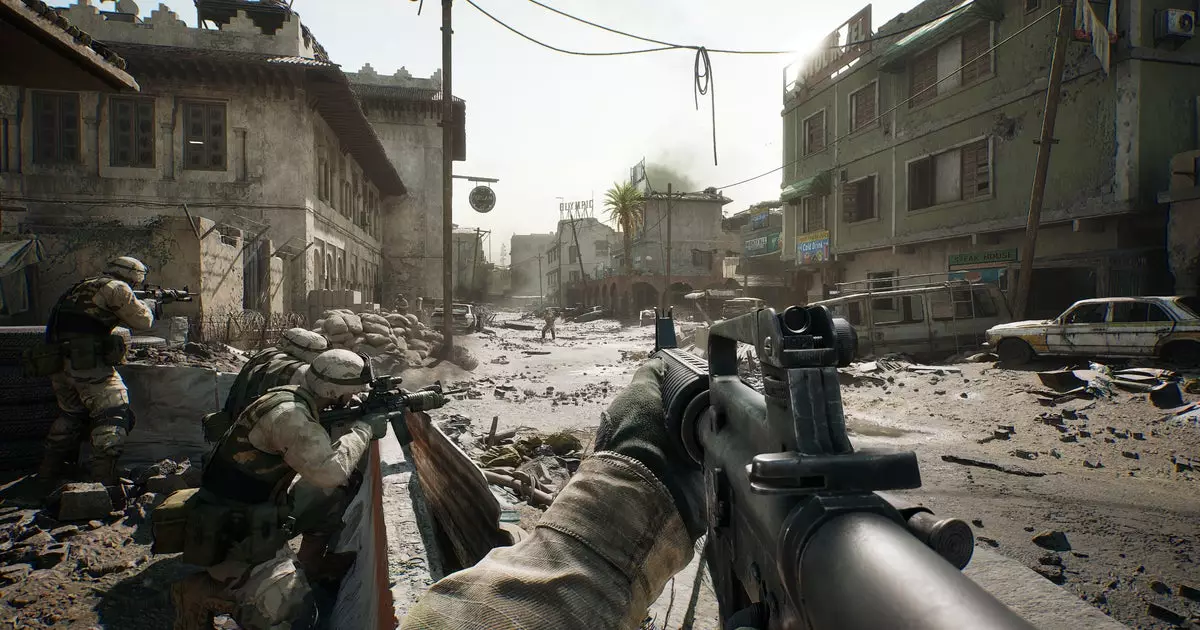The multiplayer shooter franchise Delta Force has made a triumphant return with the release of a new co-op campaign by Team Jade and TiMi Studio Group. After a 20-year hiatus, the 2024 launch of Delta Force marks a significant milestone for fans of the series, symbolizing a journey back into the tactical shooter realm that was popularized in the early 2000s. The latest expansion not only embodies nostalgia for long-time players but also serves as a reminder of the franchise’s commitment to delivering immersive experiences.
The new co-op campaign is designed for squads of four, allowing players to engage in team-based tactics reminiscent of historical military operations. Interestingly, the campaign can also be tackled solo, presenting an additional layer of challenge for those willing to navigate the perilous missions alone. This flexibility showcases a modern gaming approach where cooperation is encouraged, yet individuality is honored. Currently, the campaign is playable exclusively with mouse and keyboard, drawing the ire of console players who anticipate the promised controller support in future updates. This limitation can be viewed as an oversight in a gaming environment where inclusivity is paramount, but the developers’ commitment to improvement is encouraging.
At the heart of this new content lies a profound historical narrative influenced by the 2001 film Black Hawk Down, which itself is based on Mark Bowden’s book about the infamous 1993 Battle of Mogadishu. The campaign effectively breaks down historical events into seven chapters, meticulously designed to recreate the tension and complexity of military operations amidst chaos. Players will engage in missions that span from infiltration attempts to rescue operations, reflecting the real-life heroism demonstrated by U.S. troops during the confrontation. This historical engagement is not mere decoration; it informs players about the gravity of military decisions and their consequences.
Delta Force’s foray into the storyline of Black Hawk Down is not entirely novel. The 2003 game bearing the same title chose to diverge from the movie’s narrative, instead drawing heavily from Bowden’s accounts. However, the landscape of media representation regarding the Somali Civil War is continually evolving. As the game adapts this storied past, it strikes a delicate balance between entertainment and the real-life complexities that surround ongoing conflicts. The historical backdrop is compelling and, when revisited, provides a crucial lens for understanding the implications of military interventions today—a poignant reminder that the ramifications of warfare resonate well beyond the battlefield.
Despite the military success on the ground, the Somali Civil War remains a persistent and unresolved crisis. The resonating cries of survivors seeking reparations echo through time, manifesting the omnipresent need for accountability in global affairs. As Delta Force encapsulates this historical narrative, it serves as both an entertainment product and a reflective medium that invites dialogue regarding the ethics of intervention and the continuous struggle for peace. In this light, the game transformation becomes a meaningful exploration of conflict and resolution, transcending traditional gaming paradigms and inviting players to ponder the complexities that lie beyond the screen.
The return of Delta Force with its new co-op campaign not only breathes new life into a beloved franchise but also serves to encapsulate and engage players with a nuanced, historical narrative that reflects on the realities of warfare and its aftermath.


Leave a Reply